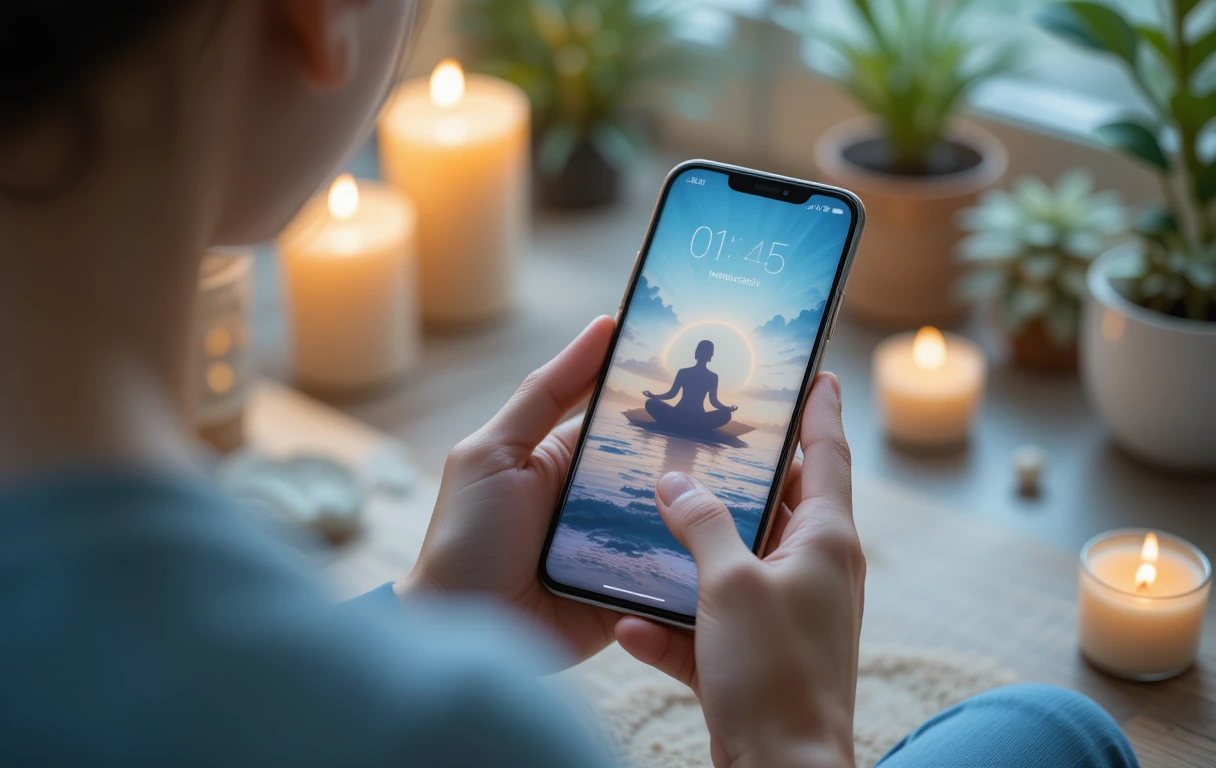Stress has become an inevitable part of modern life. From juggling work deadlines to managing personal responsibilities, life often feels like an endless sprint. Amid this chaos, meditation apps have soared in popularity, promising an antidote to stress. But do they actually work? We tested the top meditation apps to determine whether they truly help reduce stress or if they’re just another digital distraction. The results may surprise you!
Why Meditation Apps Are Booming
The demand for meditation apps has exploded in recent years. In a world where mindfulness and mental health awareness are gaining momentum, these apps claim to offer accessible solutions for busy individuals. Whether it’s calming breathing exercises, guided meditations, or sleep aids, these apps package peace of mind into the palm of your hand. But what’s fueling their popularity?
- Accessibility – Meditation apps bring expert-led practices to your smartphone, eliminating the need for in-person classes.
- Affordability – Most apps are either free or offer premium versions at a fraction of the cost of therapy.
- Flexibility – With options to meditate anytime, anywhere, they fit seamlessly into even the busiest schedules.
But does this convenience translate into real stress relief? Let’s find out.
How Stress Affects Your Mind and Body
Before diving into the apps, it’s essential to understand the toll stress takes on your body. Chronic stress can lead to:
- Increased cortisol levels (stress hormones)
- Poor sleep quality
- Lower immunity
- Anxiety and depression
Meditation, with its proven ability to calm the mind and promote relaxation, offers a natural way to counter these effects. But can an app guide you to this level of tranquility?
Top Meditation Apps We Tested
We reviewed and tested several popular meditation apps, focusing on their usability, features, and effectiveness. Here are our top picks and how they performed:
Calm: The Leader in Serenity
What It Offers: Guided meditations, soothing music, breathing exercises, and sleep stories narrated by famous voices like Matthew McConaughey.
Our Experience: Calm lived up to its name. The app’s interface immediately sets the mood with tranquil visuals and calming sounds. Guided meditations ranging from 5 to 30 minutes allowed flexibility, while sleep stories helped us drift off effortlessly.
Stress-Relief Score: ⭐⭐⭐⭐⭐
Headspace: Meditation Made Simple
What It Offers: Focused meditation sessions for stress, productivity, and sleep, plus animations explaining the science behind mindfulness.
Our Experience: Headspace’s beginner-friendly approach made it easy to get started. The app emphasizes building habits with bite-sized daily meditations. It also has targeted programs for workplace stress and anxiety, which felt particularly helpful.
Stress-Relief Score: ⭐⭐⭐⭐
Insight Timer: The Free All-In-One App
What It Offers: Over 100,000 free guided meditations, courses, and a customizable timer for silent meditations.
Our Experience: Insight Timer is a treasure trove for meditation enthusiasts. While the sheer volume of options can feel overwhelming, the search filters helped us find sessions tailored to our stress relief needs. The community aspect, with live group meditations, was a nice touch.
Stress-Relief Score: ⭐⭐⭐⭐
Simple Habit: For the Busy Bees
What It Offers: Five-minute meditations designed for specific scenarios, like preparing for a meeting or unwinding after a long day.
Our Experience: Simple Habit’s bite-sized approach was perfect for our busiest days. While the content isn’t as deep as other apps, it’s great for those looking to dip their toes into mindfulness.
Stress-Relief Score: ⭐⭐⭐
The Science Behind Meditation Apps
Meditation apps aren’t just trendy tools—they’re grounded in science. Studies have shown that regular meditation:
- Lowers cortisol levels (source: APA)
- Reduces symptoms of anxiety and depression (source: NIH)
- Improves focus and emotional regulation
Guided meditations found in apps like Calm and Headspace leverage techniques such as body scanning, breathwork, and visualization, all proven to relax the mind and body. What sets these apps apart is their ability to guide users step-by-step, making mindfulness accessible even for beginners.
Do Meditation Apps Really Reduce Stress?
After a month of testing, the verdict is clear: meditation apps can significantly reduce stress when used consistently. The key lies in finding an app that resonates with your lifestyle and preferences. Apps like Calm and Headspace excel in creating a soothing atmosphere, while Insight Timer offers endless customization. However, apps alone are not a magic solution. Pairing them with consistent effort and a willingness to pause during a hectic day is where the real stress relief happens.
Tips for Getting the Most Out of Meditation Apps
Here’s how to maximize your experience with meditation apps:
- Start Small: Begin with just 5-10 minutes a day to build consistency.
- Set Reminders: Use app notifications to establish a daily meditation habit.
- Create a Routine: Meditate at the same time each day, whether it’s morning or before bed.
- Experiment: Try different techniques like mindfulness, visualization, or body scans to discover what works best for you.
Are Meditation Apps Right for Everyone?
While meditation apps are a fantastic tool for stress relief, they may not work for everyone. Some people might prefer in-person classes or find that structured techniques don’t suit their needs. However, the low cost and accessibility of apps make them worth a try for anyone seeking a simple way to relax and reset.
Final Verdict: Are Meditation Apps Worth It?
Absolutely! Meditation apps provide an accessible gateway to mindfulness, offering tools to combat stress and promote relaxation. Whether you’re a beginner or seasoned meditator, these apps simplify the process of calming your mind in a fast-paced world. While they may not replace traditional mindfulness practices or therapy, they’re an excellent supplement for maintaining mental wellness.




